Kids are natural scientists from the day they’re born. Watch a baby and you’ll see surprise in their eyes when something unexpected happens; then they’ll try it again and again to see if they get the same result.
That’s science.
Fast forward a few years and you’ll see kids attempting insane physical feats and then figuring out (sometimes hilariously) why they didn’t work out.
That’s science.
They’ll go through a period where it seems like their only goal in life is to tear things open or take things apart, to see what’s inside or what makes them work.
That’s science, too.
Science is curiosity and experimentation and observation and conclusions and trying again. The scientific process— developing a theory, then testing, testing, testing— is a natural and essential part of childhood; one that should be encouraged and celebrated. Not just to keep the love of science alive through the school years, but because a healthy curiosity and drive to figure things out is a very healthy trait to carry with you your entire life.
But while kids are young, one of the best things about science experiments is that they’re a adult-sanctioned reason to get messy! Here’s a simple, not too messy one for the pint-size scientist in your house to try, from Kitchen Science Lab for Kids: 52 Family Friendly Experiments from Around the House by Liz Lee Heinecke.
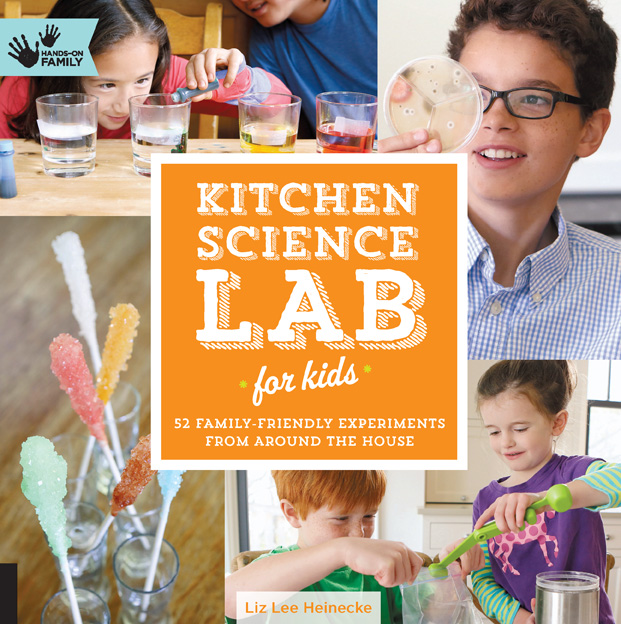
Magic Bag
Do you think a bag of water will leak if you stab it with a sharp stick? Think again.
Materials
- Resealable plastic bag (thick freezer bags work best)
- Water
- Food coloring
- Sharp wooden or
- bamboo skewers
Step 1:
Fill the resealable plastic bag with water.
Step 2:
Add a drop or two of food coloring to the bag and seal it shut.
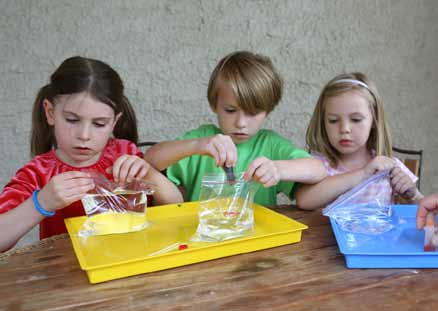
Step 3:
Slowly poke a wooden or bamboo skewer completely through the bag, in one side, through the liquid, and out the other side. Avoid pushing it through the part of the bag containing air.
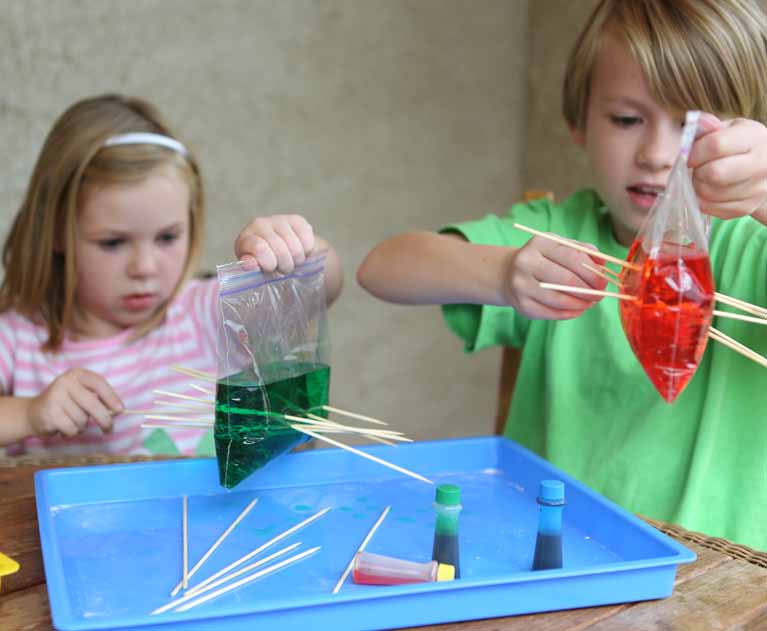
Step 4:
See how many skewers you can push through before the bag leaks.
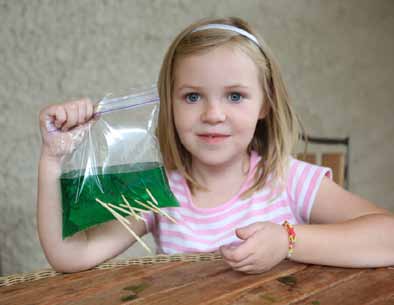
Creative Enrichment
Does this experiment work with other liquids? What if the water is hot, or cold? What happens if you poke one end of your stick through the portion of the bag that contains air?
Safety Tips and Hints
Be careful with the sharp points of the skewers. Small children should be supervised.
This is a good experiment to do outside, over a sink, or over a bowl.
The Science Behind the Fun
Plastic is a polymer, made up of long, elastic molecules that form a seal around the spot where the skewer is poking through. This polymer seal prevents the bag from leaking excessively.
click for enlarged, printable PDF
For more, check out Liz Lee Heinecke’s blog The Kitchen Pantry Scientist, or her newest book Outdoor Science Lab for Kids: 52 Family-Friendly Experiments for the Yard, Garden, Playground, and Park.
You can also find more kid science on these sites:
April Noelle 17-Oct
Happy Healthy Hip Parenting 18-Oct
Mom of 2 Dancers 19-Oct
Just Joanna 20-Oct
Familylicious 21-Oct
Say it, “Rah-shay” 22-Oct
The Life of a Home Mom 24-Oct
Mom, Are We There Yet? 25-Oct
Bless Their Hearts Mom 26-Oct
Central Minnesota Mom 27-Oct
Cassandra M’s Place 28-Oct
My Silly Little Gang 29-Oct
Houseful of Nicholes 30-Oct
Cook with 5 kids 31-Oct
From Kitchen Science Lab for Kids by Liz Lee Heinecke
© 2014 by Quarry Books Text
© 2014 Liz Lee Heinecke Photography
© 2014 Amber Procaccini Photography

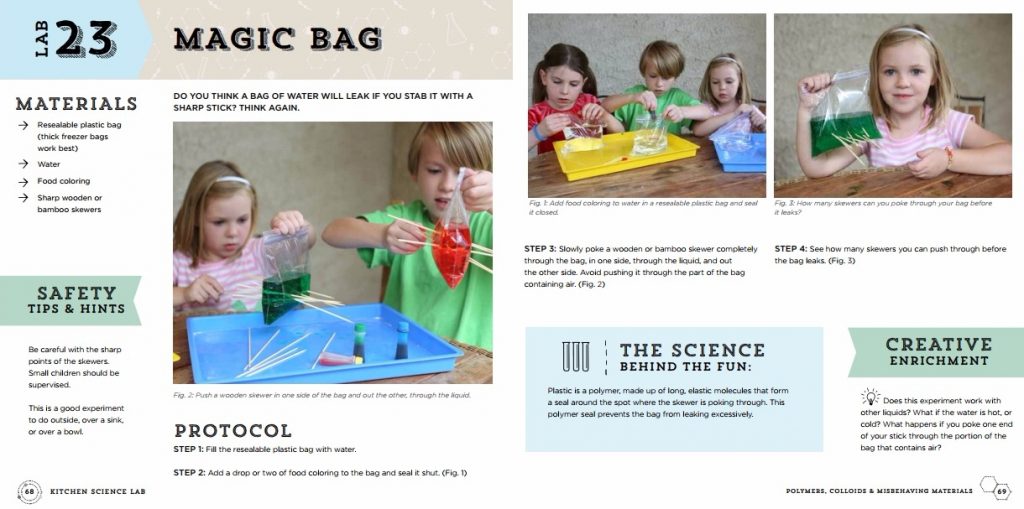
Leave a Reply